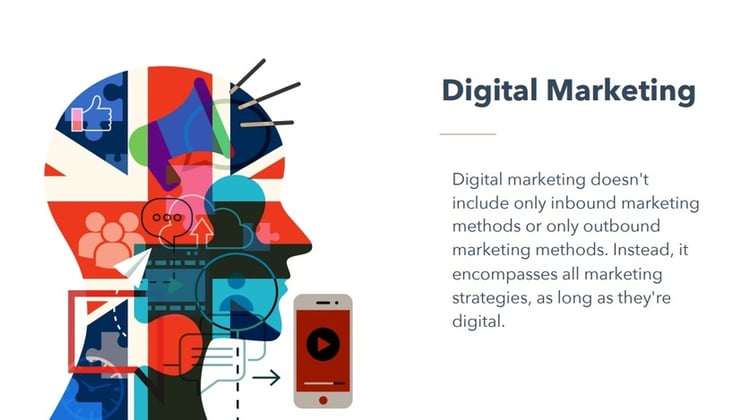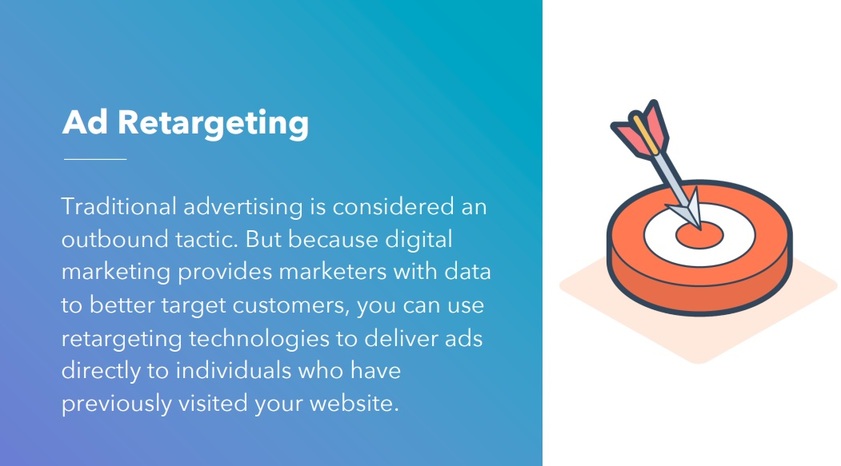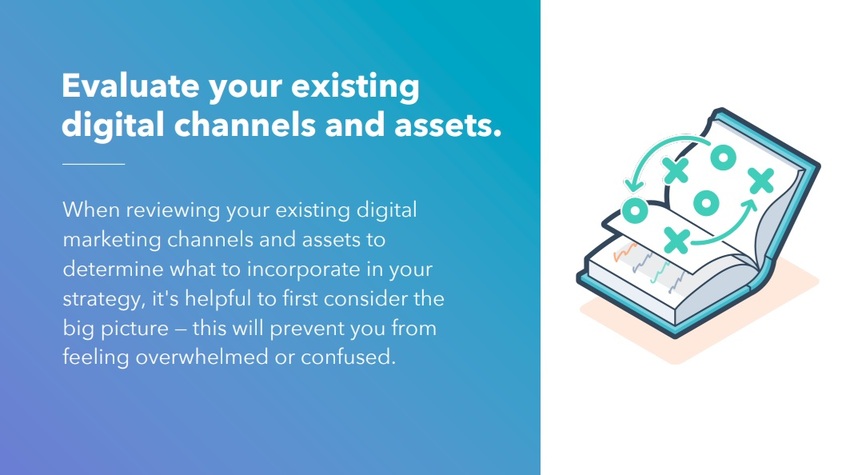Digital Marketing Fundamentals: Optimizing for Small Business Success
- Home
- Digital Marketing Fundamentals: Optimizing for Small Business Success
Inbound Marketing and Digital Marketing Fundamentals
Comprehending the complicated bond between inbound and digital marketing is fundamental for any firm striving to expand in today's rapid online atmosphere. The key lies in creating valuable, customer-centric content that not only attracts but also engages your target audience.

The Importance of Customer-Centric Content in Inbound Marketing
Inbound marketing thrives on customer-centric content. This type of content focuses on addressing the needs, interests, or challenges faced by your customers. It's about providing solutions or adding value to their lives rather than just promoting your products or services. By doing so, you're more likely to attract potential customers to your brand organically.
Leveraging Social Media for Promoting Your Content
Social media channels serve as effective platforms for promoting this customer-focused content. With billions of users across different social networks, businesses have a great opportunity to reach out to their target audience and engage with them. A well-planned social media strategy can help amplify the visibility of your engaging content, potentially leading to increased website traffic and higher conversion rates.
Ad Retargeting as a Digital Strategy

Moving onto another essential aspect of digital marketing - ad retargeting. Ad retargeting is an efficient way to reconnect with individuals who have previously interacted with your brand but didn't convert into customers during their initial visit.
Creating Accurate Buyer Personas For Successful Ad Retargeting
To make ad retargeting work effectively, it's important first to understand who exactly you are targeting - enter buyer personas. Creating accurate buyer personas helps provide insights into what motivates buyers' decisions, making them invaluable tools when planning out a successful ad retargeting campaign.
Identifying Target Audience For Effective Reach
Apart from crafting detailed buyer personas, identifying specific target audiences based on demographics such as age group, location, etc., will ensure that you're reaching those most likely interested in what you have to offer, thereby increasing chances of conversions through targeted ads.
The article discusses the relationship between inbound marketing and digital marketing, emphasizing the importance of customer-centric content in attracting potential customers organically. It also highlights social media as an effective platform for promoting engaging content and ad retargeting as a crucial aspect of digital marketing that requires accurate buyer personas and identifying specific target audiences to increase conversion rates.
Ad Retargeting: The Ultimate Digital Strategy
Ad retargeting is a powerful digital advertising technique to interact with prospects who have previously expressed an interest in your offerings. By creating accurate buyer personas and identifying target audiences, you can significantly enhance your brand's reach.
Create Accurate Buyer Personas for Successful Ad Retargeting
To successfully implement ad retargeting, create detailed and accurate buyer personas. These are semi-fictional representations of your ideal customers based on real data about customer demographics and online behavior. A well-crafted persona will help you understand what motivates buyers to make a purchase decision and where they spend their time online.
Consider factors such as demographic details, interests, hobbies, type of content they consume, and social media platforms they use most frequently.
Identify Your Target Audience for Effective Reach
An integral part of successful ad retargeting is accurately identifying your target audience. Understanding who makes up this audience allows you to tailor ads specifically designed to resonate with them.
Don't limit yourself to those who visited your website but didn't convert. Consider targeting people who read or shared similar content online or followed competitors' pages on social media platforms like Facebook or LinkedIn.
Tips for Identifying Your Target Audience:
- Determine the common characteristics among your best customers.
- Analyze competitor strategies.
- Leverage analytics tools.
Effective implementation of ad retargeting requires a thorough understanding of your product or service and the ability to put yourself in the shoes of prospective customers to truly grasp what might motivate them towards making a purchase decision. By leveraging analytics tools and a strategic approach, ad retargeting can be an invaluable tool for small businesses to expand their reach in the digital sphere.
Ad retargeting is a powerful digital marketing strategy that can help businesses engage potential customers who have shown interest in their products or services. To successfully implement ad retargeting, it's important to create accurate buyer personas and identify your target audience. By tailoring ads specifically designed to resonate with this audience, businesses can significantly enhance their brand's reach and grow in the digital space.
Effective Content Formats
In the digital marketing world, content reigns supreme. However, not all content is of equal value. Some formats are more effective in attracting and retaining customers while enhancing brand credibility. Let's explore some of these.
Free Samples: A Tool to Attract New Customers
Who doesn't love freebies? Giving away free samples is an excellent approach to draw in prospective customers without them having to take on any risk. This strategy can create buzz around your brand, generate leads, and convert prospects into loyal clients.
The key is to ensure that the sample represents the quality and value of what you're offering in full scale. Remember, this might be someone's first interaction with your product - make it count.
Webinars: Engaging with Existing Clients
Webinars, live online presentations or workshops where attendees can interact directly with presenters, are another powerful tool in the inbound marketing arsenal. They provide a platform for brands to share valuable information about their offerings while establishing themselves as thought leaders within their industry.
A well-executed webinar should educate and entertain its audience - keeping them engaged throughout the session and leaving them eager for more at its conclusion.
Testimonials: Building Trust Among Prospects
Last but not least: testimonials from satisfied customers serve as social proof that your products or services deliver on their promises - they're like word-of-mouth referrals on steroids. These authentic endorsements can greatly influence purchasing decisions by building trust among prospective buyers who may still be sitting on the fence about trying out what you offer.
A renowned digital marketer suggests incorporating testimonials across various touchpoints such as websites, email newsletters, etc., making sure they're easily accessible when needed.
To sum up: Effective use of different content formats like free samples, webinars, and customer testimonials could significantly enhance your inbound marketing efforts by attracting new leads while nurturing existing ones towards conversion. Remember though; no one size fits all - so always test out which format works best for YOUR specific target audience before fully committing resources towards it.
This section discusses effective content formats for digital marketing, including free samples to attract new customers, webinars to engage with existing clients and establish thought leadership, and testimonials from satisfied customers as social proof to build trust among prospects. It emphasizes the importance of ensuring that each format represents the quality and value of what is being offered and testing which works best for a specific target audience before committing resources towards it.
Evaluating Existing Channels Before Purchasing New Tools

Before you dive into the world of new marketing automation tools, take a step back and evaluate your existing digital channels. Assessing the performance of your current resources can help you make informed choices about forthcoming investments.
Importance of Auditing Current Digital Assets
Auditing your current digital assets is an essential first step toward optimizing your inbound marketing strategy. This process involves assessing all aspects of your online presence - from social media profiles and website content to email marketing campaigns and paid advertisements. By analyzing these components, you can gain useful insights into what is successful, what isn't working properly, and where there could be space for enhancement.
The benefits of conducting a thorough audit include identifying trends or patterns that could inform future strategies, uncovering any potential issues with user experience on your platforms, as well as understanding how effectively you're reaching and engaging with your target audience.
Factors to Consider Before Purchasing a New Marketing Automation Tool
Purchasing new marketing automation tools can be quite an investment; therefore it's important to consider not only the cost but also other factors such as:
- Your specific needs: Different businesses have different requirements when it comes to automating their marketing efforts. It's critical that the tool aligns with those unique needs.
- User-friendliness: The ease-of-use is another significant factor since complex systems may require more time for training or implementation.
- Suitability for business size: Some tools are better suited for large corporations while others work best for small businesses.
- Credibility & Reviews: You should always check out reviews from other users before investing in any tool. G2 offers real-time ratings by verified end-users which can provide great insight.
In conclusion, before splurging on shiny new software promising game-changing results - pause. Assess the value of your current resources before making any new investments. Audit every nook and cranny of your existing digital assets thoroughly so that whatever decision you make next will be based on solid data rather than mere speculation or hype. Remember - sometimes refining what we already have yields far greater returns than purchasing something brand-new.
Before investing in new marketing automation tools, businesses should evaluate their existing digital channels and audit their current assets to gain insights into what's working and where there is room for improvement. Factors such as specific needs, user-friendliness, suitability for business size, credibility & reviews should be considered before making any purchasing decisions. It's important to remember that sometimes refining what we already have can yield greater returns than buying something brand-new.
Boost Your Business with Digital Marketing Strategies
Do you desire to advance your business? A robust digital marketing strategy is the way to go. Start by auditing your paid media activities to identify gaps and take corrective action. Let's dive in.
Effective Audit of Paid Media Activities
The first step in implementing a successful digital marketing strategy is to audit your paid media activities. Evaluate your current advertising efforts across various channels like Google Ads, Facebook Advertising, and LinkedIn Sponsored Content. Look beyond website performance metrics like CTR, CVR, and CPA to consider ad relevance score and quality score, which can significantly impact campaign efficiency.
- CTR: A high CTR means users find your ads engaging and relevant.
- CVR: Conversion rate tells you how many clicks resulted in desired actions.
- CPA: Cost per acquisition measures how much each new customer costs you through paid advertisements.
Identifying Gaps in Your Strategies
After auditing your paid media activities, identify gaps in your current strategies. These could be anything from poorly performing keywords to ineffective landing pages or lack of audience segmentation in ad targeting. Pinpointing these issues early on allows you to make necessary adjustments before they become larger problems down the line.
HubSpot's guide on creating a digital strategy provides great insights into recognizing these potential pitfalls. Once identified, revise keyword lists based on search volume data or optimize landing pages for better user experience, among other things.
Click to Tweet
FAQs in Relation to Digital Marketing
What are articles in digital marketing?
In digital marketing, articles are written content created for online distribution to engage readers, generate leads, improve brand awareness and credibility, and boost SEO rankings.
What are 5 topics in digital marketing?
- SEO Strategy (Search Engine Optimization)
- Content Marketing Framework
- Social Media Marketing
- Email Marketing
- Paid Advertising (PPC)
What are some interesting topics in digital marketing?
Engaging topics in digital marketing include AI & Machine Learning, Voice Search Strategy, Chatbot Integration, Influencer Marketing, Video Marketing, and Content Creation.
What are the 7 C's of digital marketing?
The 7 C's of Digital Marketing are Customer, Consistency, Creativity, Context, Culture, Communication, and Change.

